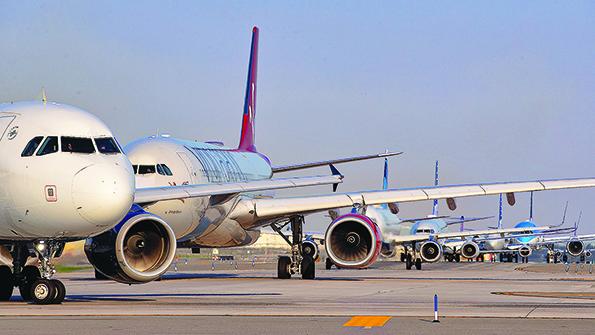
By the end of this year, more than 2,000 aircraft will have been affected by airline failures and restructurings occurring since the start of the COVID-19 pandemic, new research from consultancy IBA suggests.
IBA said that 63 airlines either collapsed or started restructuring in 2020 and 2021, and it predicts a further 20 will do so this year.
While this should imply a busy period for cabin refitters and MRO providers that handle the technical side of lease transitions, it’s also worth noting that aircraft repossessions and lease terminations have not marched in step with the scale of restructuring.
“We have seen a huge amount of forbearance from leasing companies to airlines over the past two years,” notes Kevin Butler, head of capital markets – EMEA at TMF Group, which provides financial services to lessors.
That forbearance has included deferred lease payments, the cancellation of some leasing debts and the acceptance of flight-hour-based rent payment for set durations, albeit often in exchange for longer lease terms.
A major reason for such leeway is the lack of remarketing opportunities for aircraft in the COVID-19-hit passenger market.
Under normal conditions, many of the aircraft benefiting from deferred rent or usage-based lease contracts would have been repossessed, but financiers have largely supported lessors’ decision to keep them in place under new terms.
“No one wants a plane back if it has nowhere to go, so it’s in everyone’s interest to work together and come to some sort of arrangement,” observes Rebecca Hassett, senior manager in TMF’s Transaction Services Group.
Of course, there have been exceptions, notably in Indonesia, where flag carrier Garuda has sought to return about 100 leased aircraft. Furthermore, many lessors have cut ties with Indonesian low-cost carrier group Lion Air over fears that the company would walk away from its obligations and launch itself as a new airline.





